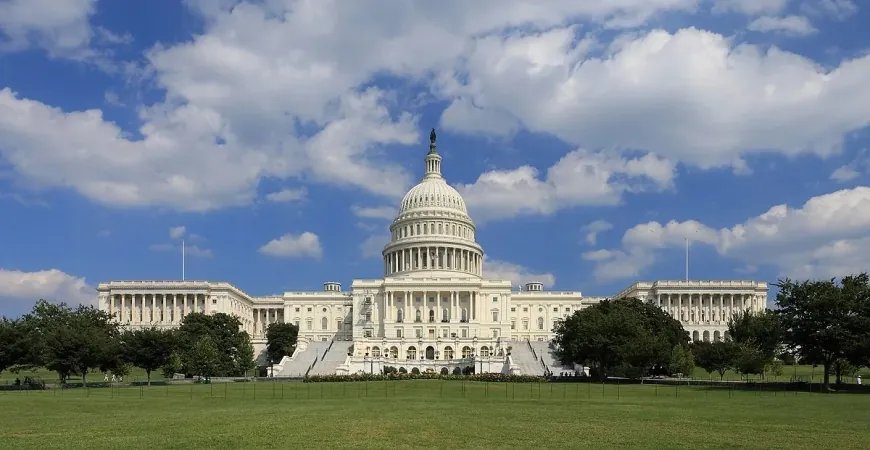Senate Shocks Clean Energy Industry with Last-Minute Bill Changes, Musk Calls It “Destructive”
Senate adds fossil fuel perks and cuts clean energy tax credits in last-minute bill rewrite, sparking backlash from Elon Musk and energy groups.

U.S. Senate introduced a raft of last-minute energy amendments to President Trump's hallmark economic legislation. The sweeping 900-page bill, which is in its final stages before a Senate vote, now includes provisions that roll back support for clean energy initiatives and introduce new advantages for fossil fuel producers.
The sudden changes have blindsided renewable energy proponents and industry leaders — including Tesla CEO Elon Musk — who voiced outrage over what many are calling a major reversal in national energy priorities. Meanwhile, fossil fuel advocates are celebrating a long-awaited return to prominence in federal policy.
The energy revisions are just one aspect of a bill that has ballooned in cost and complexity over weeks of negotiations. A new Congressional Budget Office (CBO) report released over the weekend revealed that the Senate version would increase the national debt by a staggering $3.3 trillion over the next decade, not including interest. Despite growing concerns about fiscal impact, the Senate cleared a crucial procedural hurdle this weekend, with debate and amendments continuing into Monday.
Clean Energy Rolled Back, Fossil Fuels Elevated
One of the most contentious aspects of the revised bill is its shift in energy policy. Earlier drafts proposed a gradual sunset of clean energy tax credits, including those for solar panels, wind power, and electric vehicles. However, new amendments speed up the rollback significantly. In particular, electric vehicle tax incentives would end by September 30, while wind and solar projects face an unexpected tax penalty if built using certain imported components beginning in 2027.
Adding insult to injury for clean energy investors, the amended legislation includes fresh incentives for fossil fuels. Coal, once at the heart of America's energy landscape but recently in decline, is now classified as a "critical mineral" — making it eligible for new manufacturing credits. Additional tax credits and streamlined permitting processes for oil and gas ventures have also been inserted.
"We’re doing coal," Trump declared during a Fox News appearance over the weekend. The former president also disparaged solar energy developments, referring to them as "ugly as hell."
These changes have led to a stark divide in Washington. Renewable energy supporters, already on edge from reduced federal support in recent years, now fear an even steeper uphill battle. Fossil fuel lobbyists and conservative lawmakers, on the other hand, see the bill as a historic course correction.
Elon Musk, Industry Groups Voice Alarm
Among the most prominent critics is Elon Musk, the billionaire CEO of Tesla and SpaceX. In a string of social media posts, Musk condemned the energy provisions as "utterly insane and destructive," arguing they prop up legacy industries while stifling innovation.
The American Clean Power Association echoed Musk’s concerns, stating that the revised bill could undermine hundreds of billions of dollars in ongoing and planned renewable energy investments. The association warned that these abrupt changes would reverberate through the sector, leading to delays, cancellations, and potentially increased energy costs for consumers.
One of the biggest long-term risks cited by experts is rising electricity demand — particularly from data centers being built to support artificial intelligence infrastructure. Without the projected growth in renewable energy capacity, some analysts anticipate double-digit increases in utility bills for American households by 2029.
Democratic lawmakers have also weighed in. Senator Brian Schatz of Hawaii was blunt in his criticism, stating, “We are literally going to have not enough electricity because Trump is killing solar.”
Budgetary Fallout and Political Pressure
While the energy provisions have dominated headlines, the broader bill is also drawing intense scrutiny for its financial implications. Over the weekend, the CBO’s updated analysis projected a $3.3 trillion increase to the national debt through 2034 — a number that doesn’t include interest payments or additional amendments still being debated.
The health care portion of the bill could also push millions off insurance plans. The CBO estimates that 11.8 million Americans would lose health coverage by 2034 under the Senate’s current draft, an increase over the House version’s estimated 10.9 million.
Outside fiscal watchdogs, like the Committee for a Responsible Federal Budget, say the actual cost could climb even higher. Depending on final revisions, they project the total impact could range between $3.5 trillion and $4.2 trillion, or even reach $4.5 trillion if certain adjustments are adopted.
Despite the jaw-dropping numbers, Trump remains unfazed. He urged lawmakers to ignore short-term deficit worries and instead focus on electoral survival, posting online: "REMEMBER, you still have to get reelected." Trump continues to maintain that explosive economic growth — though dismissed by many mainstream economists — will offset the spending increases over time.
House Showdown
As the Senate hurtles toward a final vote, the bill's fate remains far from certain. Even if the upper chamber approves the amended legislation, the package will return to the House — where a powerful bloc of fiscal conservatives is already expressing resistance.
The House Freedom Caucus has issued a preliminary statement warning that the new cost estimates violate the agreed-upon budget framework from earlier negotiations. That could spell trouble for Trump’s push to finalize the bill in the coming days.
Meanwhile, Senate Republicans are preparing a procedural maneuver known as the "current policy baseline" to obscure $3.8 trillion in projected debt — a tactic Democrats argue violates Senate rules but which appears poised to proceed.
With the Senate session entering its final stages and national attention fixed on the bill’s enormous price tag and energy realignment, what was once framed as a unifying economic package has morphed into a divisive showdown over America's energy and fiscal future.
For now, the only certainty is that the stakes — environmental, political, and financial — couldn’t be higher.
Read More: Senate Advances Trump’s $4.5 Trillion Tax Bill, But Final Passage Remains Uncertain
































































